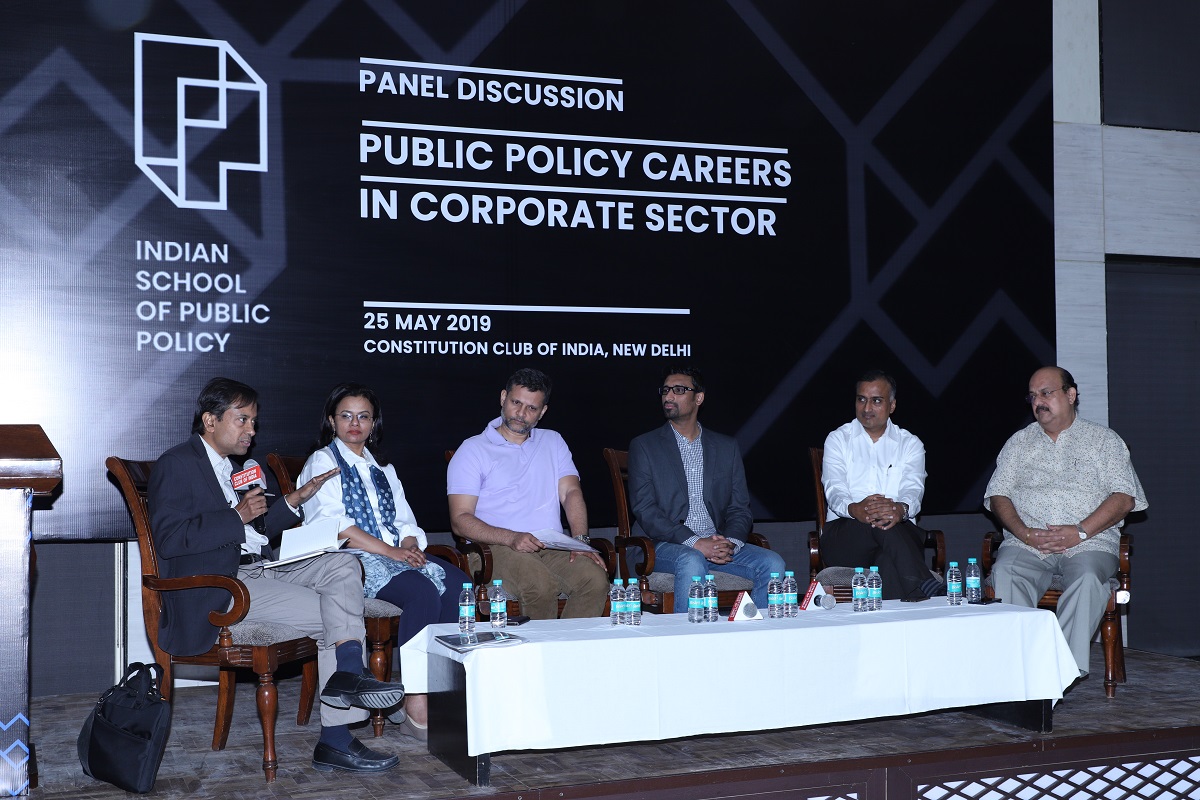2036 Olympics and Paralympics: India formally submits Letter of Intent to IOC
There has been no official confirmation yet but according to reliable sources, the letter was submitted on October 1 with Ahmedabad as the likely host city.
As public policy is moving towards becoming a rewarding career, the Indian School of Public Policy (ISPP), keeping the rising demand for this career choice, organised a panel discussion on the topic: Public Policy Careers in the Corporate Sector on May 25.

The panel discussion was moderated by Rajesh Chakrabarti. (SNS)
As India is undertaking new schemes and avenues for development, the need for qualified public policy professionals is also rising to handle the challenges that come along the journey towards success. Realising the need for experts in the field, the Government, as well as corporate bodies, have started attracting such talent in their policy-making exercises.
As public policy is moving towards becoming a rewarding career, the Indian School of Public Policy (ISPP), keeping the rising demand for this career choice, organised a panel discussion on the topic: Public Policy Careers in the Corporate Sector on May 25, at the Constitution Club, New Delhi.
Moderated by Rajesh Chakrabarti (Professor and Dean, Jindal Global Business School, Jindal Global University), the discussion was attended by Arun Bhagat (President- Corporate Affairs & Advocacy, GMR Group), Mandar Kagade (Head, Public Policy & Outreach, Rupee Power), Vineeta Hariharan (Senior Leadership – Public Policies and Programmes – GoI and Multilaterals), Ashish Aggarwal (Senior Director and Head – Public Policy, NASSCOM) and Chetan Krishnaswamy (Director, Public Policy, India and South Asia, Google).
Advertisement
Dr Parth J Shah, Founder & Director, the ISPP and President – Centre for Civil Society started the session with an introduction to the ISPP. It was followed by a panel discussion. Key questions such as the state of public policy making in India and the role of the corporate sector, the need for policy making minds in the corporate sector in India, the future of policymaking in the corporate sector, careers for graduates in policy making amongst others.
Chetan Krishnaswamy said, “Public policy has undergone a rapid evolution in India over the past few years. Unlike many other professions, public policy often welcomes individuals from incredibly diverse educational backgrounds and work experiences. Strong analytical and interpersonal skills, along with the ability to distil complicated developments in a manner that they are easy to grasp for non-experts, are arguably the two most vital requirements from a public policy professional.” Ashish Aggarwal said that public policy is still an emerging sector in India while emphasizing on the scope for development this domain has to offer. “Select domain expertise and experiential learning would be crucial,” said Ashish Aggarwal. Mandar Kagade laid stress on public policy being an important career option as it serves as a vital interface between the government and the corporate.
Vineeta Hariharan said, “Today is the right time for individuals to embark on a career in public policy. Private and public sectors need trained professionals in this domain. A course in public policy is vital to speed track one’s career in the public sphere, and for the youth to be educated and trained to contribute towards nation building.”
Arun Bhagat said that though earlier public policy was not seen as an integral part of a business, times have now seen a significant change. The skill sets required for a professional in this domain may be varied, but the focus is on communication skills, panoramic knowledge and awareness, as well as basic intelligence.
About ISPP:
The Indian School of Public Policy (ISPP) was formally launched on October 23, 2018, at the Constitution Club of India, New Delhi by dignitaries including NK Singh, Rajiv Mehrishi and Gurcharan Das.
Advertisement